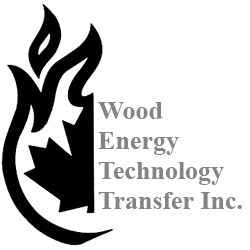Chimney Inspections aka Scoping
Regular chimney inspections, including scoping when deemed necessary, are essential for the safety, functionality, and longevity of your chimney system. It’s generally recommended to have a chimney inspection performed at least once a year, especially before the start of the heating season, to ensure it operates efficiently and safely
Having your chimney scoped or inspected offers several advantages:
- Identifying Issues: A chimney inspection can uncover various problems such as cracks, blockages, or structural damage that might be unseen to the naked eye. As a result, this early detection helps in preventing potential hazards and costly repairs down the line.
- Ensuring Safety: Regular inspections ensure your chimney is safe to use. They can identify creosote buildup, which is highly flammable and can lead to chimney fires. Accordingly, they can also detect blockages or structural issues that could pose a risk to your home’s safety.
- Maintaining Efficiency: An inspection can help ensure that your chimney is operating efficiently. Any obstructions or damage could hinder proper ventilation, leading to issues like poor airflow or smoke backing up into your home.
- Compliance with Regulations: In certain areas, regular chimney inspections may be required by local building codes or insurance companies. Additionally, ensuring your chimney is up to code can prevent legal issues and maintain insurance coverage.
- Preventing Costly Repairs: Identifying problems early through regular inspections can save you money in the long run. Addressing minor issues promptly prevents them from escalating into larger, more expensive repairs.
- Peace of Mind: Knowing that your chimney is in good condition and safe to use provides peace of mind, especially during the winter when you’re likely to use your fireplace or heating stove more frequently.
Overall, chimney inspections are crucial for the safety, efficiency, and proper functioning of your chimney system. Regular inspections, at least annually, are recommended to ensure optimal performance and safety. Having your chimney scoped, which typically refers to a thorough inspection using specialized cameras or scopes, offers several important benefits:
- Comprehensive Inspection: Chimney scoping provides a detailed and comprehensive view of the chimney’s interior. It allows inspectors to visually examine areas that may be impossible to see otherwise, while identifying any hidden issues.
- Detecting Hidden Problems: Even if your chimney looks fine from the outside, there could be underlying issues within the flue or chimney structure. Scoping allows for the identification of problems such as cracks, deterioration, blockages, or creosote buildup, that may not be apparent without a closer inspection.
- Safety Assurance: Identifying issues early through a chimney scope can prevent potential safety hazards. For instance, discovering cracks or deterioration early on can prevent structural issues that might compromise the chimney’s stability. It can also help detect creosote buildup, which is highly flammable and a potential cause of chimney fires.
- Accurate Assessment: Scoping provides a clear visual record of the chimney’s condition. This documentation can be helpful for insurance claims, property evaluations, or when buying or selling a home, providing accurate information about the chimney’s state.
- Professional Guidance: A professional chimney inspection using specialized scopes or cameras is conducted by trained experts who can offer advice on necessary repairs or maintenance, ensuring the chimney is safe and functional.
- Peace of Mind: Knowing the actual condition of your chimney through a scoped inspection can offer peace of mind. It assures you that your chimney is in good condition or addresses any repairs required to ensure its safe operation.
Insurance brokers might request a chimney inspection, including scoping, for several reasons related to risk assessment and safety:
- Fire Hazard Mitigation: Chimneys are one of the leading causes of house fires. Insurers want to ensure that your chimney is in good condition and doesn’t pose a significant fire risk. A scoped inspection helps identify potential hazards like creosote buildup or structural issues that could increase the likelihood of a fire.
- Preventative Measures: By requiring a chimney inspection, insurance brokers aim to prevent potential claims or damage to the property. Early identification of issues through a scoped inspection allows for necessary repairs or maintenance to take place. This significantly reduces the chances of incidents that could lead to insurance claims.
- Policy Compliance: Some insurance policies may require homeowners to maintain specific safety standards. Having a chimney inspection, including scoping, might be a part of these requirements to ensure the home meets safety standards, helping homeowners stay compliant with their insurance policies.
- Risk Assessment: Insurance companies assess risks associated with insuring a property. A well-maintained chimney decreases the risk of fire or property damage, potentially influencing insurance premiums or coverage. A scoped inspection helps insurers understand the actual condition of the chimney, affecting the risk evaluation process.
- Liability Reduction: By ensuring that the chimney is regularly inspected and maintained by professionals, insurance brokers can reduce their liability. They encourage homeowners to maintain their properties safely, which reduces the chances of claims due to preventable chimney-related incidents.
- Compliance with Regulations: In some regions, insurance companies may require proof of regular chimney inspections or maintenance as part of their underwriting guidelines.
Ultimately, insurance brokers are concerned with reducing risks and ensuring the safety of the properties they insure. Requiring a chimney inspection, including scoping, proactively addresses potential hazards and ensuring that the property is well-maintained.


